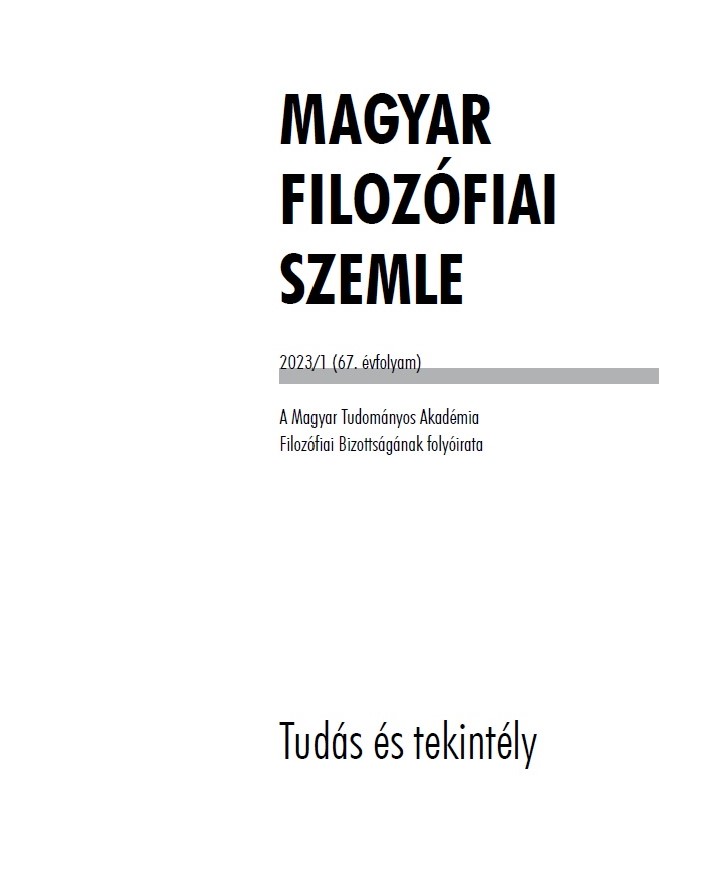Tudás és tekintély a sztoikus ismeretelméletben
Absztrakt
I argue that epistemic trust may have played a role in the Stoic theory of knowledge. This is suggested by various features of their doctrine of apprehension as reported by Plutarch and Sextus Empiricus. First, Plutarch reports in his De Stoicorum Repugnantiis that a Stoic teacher will expertly lead their disciple through the solutions of dialectical objections and counterarguments in order to secure their apprehension of the relevant impressions. Second, Sextus seems to suggest in the second book of his Outlines of Pyrrhonism that his presumably Stoic opponents recognized a type of probative argument that does not amount to genuine proof exactly because it rests on empirical generalization or trust in authority. However, while authority may conduce to apprehension, it cannot serve as its justification. In conclusion, I give a brief but fair hearing to the worry that, since Plutarch and Sextus are sources hostile to Stoicism, my claim rests on admittedly shaky ground.



